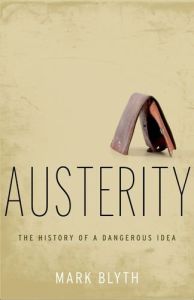
Recommendation
If you think austerity measures will clean up the mess that stumbling banks left behind, Brown University professor Mark Blyth is out to change your mind. He presents the logic behind using austerity as a tool for lowering debt and recharging economies, and then blows that logic out of the water with effective arguments and historical facts. Though his argument is accessible to lay readers, he provides enough technical information to engage experts. But whether he sways you to his side or not, his quirky, witty writing style – which makes this intrinsically dry subject matter engaging – will draw you in. While always politically neutral, getAbstract recommends Blyth’s book to economists, investors, policy makers and those interested in global economics.
Summary
About the Author
Mark Blyth is a professor of international political economy at Brown University and the author of the book Great Transformations: Economic Ideas and Institutional Change in the 20th Century.








Comment on this summary